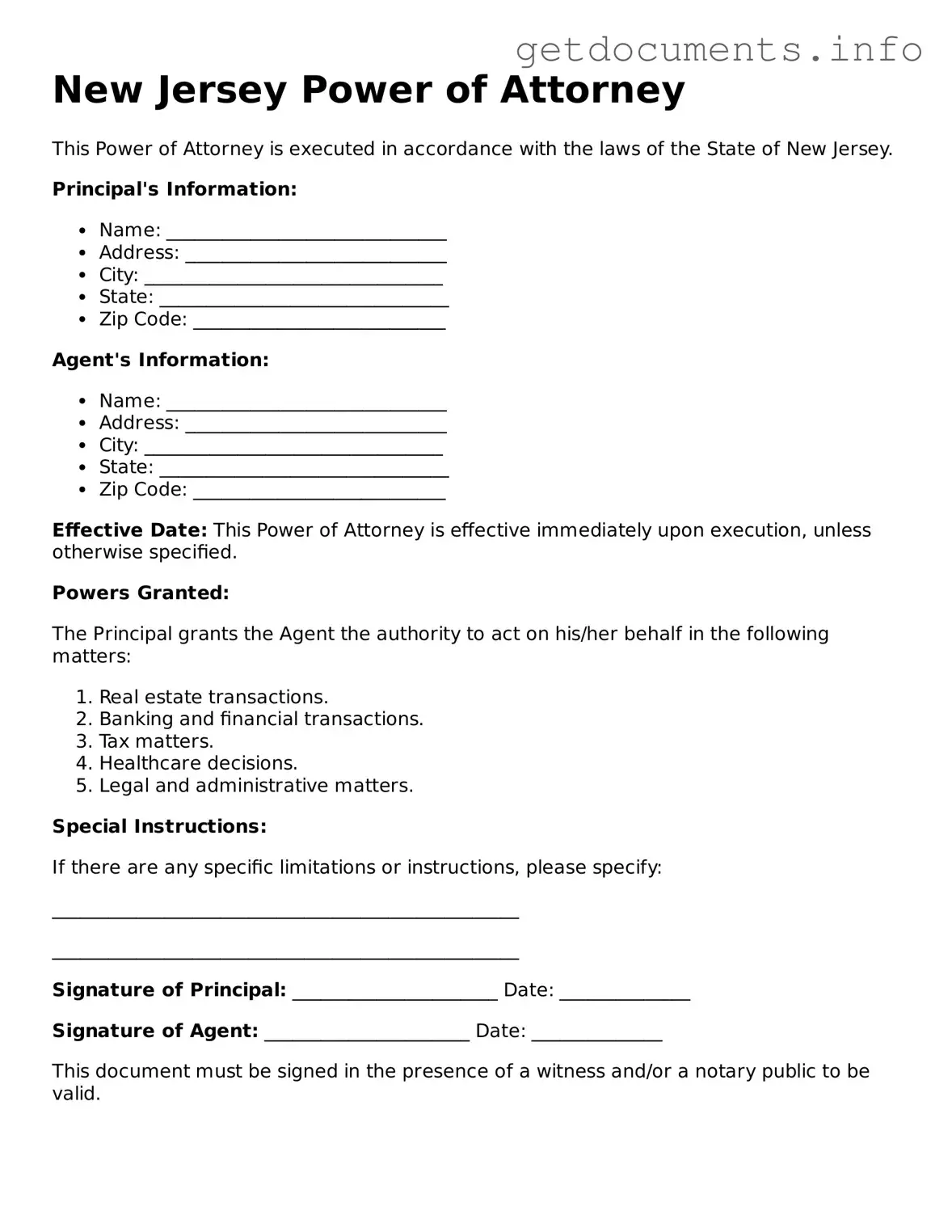Understanding the New Jersey Power of Attorney form is crucial for anyone considering this important legal document. However, several misconceptions often cloud the true nature of what a Power of Attorney entails. Below is a list of common misunderstandings, along with clarifications to help demystify the process.
- Misconception 1: A Power of Attorney is only for the elderly.
This is not true. Anyone, regardless of age, can benefit from having a Power of Attorney. It is a proactive measure that can help in various situations, such as travel or health emergencies.
- Misconception 2: A Power of Attorney gives complete control over my finances.
While a Power of Attorney does grant authority to manage financial matters, the extent of that control can be limited. You can specify which powers you wish to grant, allowing for tailored arrangements.
- Misconception 3: A Power of Attorney is permanent and cannot be revoked.
This is incorrect. You can revoke a Power of Attorney at any time, as long as you are mentally competent. It’s essential to notify your agent and any institutions involved if you decide to revoke it.
- Misconception 4: I need a lawyer to create a Power of Attorney.
While having a lawyer can be helpful, it is not strictly necessary. New Jersey provides forms that you can fill out on your own. However, legal advice can ensure your document meets all your needs.
- Misconception 5: A Power of Attorney can make medical decisions only when I am incapacitated.
That is a common belief, but a Power of Attorney can also allow your agent to make medical decisions while you are still competent if you choose to grant that authority.
- Misconception 6: My Power of Attorney is valid everywhere in the U.S.
This is not necessarily the case. While many states recognize out-of-state Powers of Attorney, some may have specific requirements or forms. It’s wise to check local laws if you move or travel.
- Misconception 7: A Power of Attorney can be used after my death.
This is false. A Power of Attorney is only valid while you are alive. Once you pass away, the authority granted to your agent ends, and your estate will be handled according to your will or state laws.
- Misconception 8: All Powers of Attorney are the same.
In reality, there are different types of Powers of Attorney, such as general, durable, and medical. Each serves a different purpose and has varying levels of authority, so it’s important to choose the right one for your needs.
- Misconception 9: My agent must be a family member.
While many people choose family members, it is not a requirement. You can appoint anyone you trust, including friends or professionals, as your agent. The key is to select someone who will act in your best interests.
By understanding these misconceptions, individuals can make more informed decisions regarding their Power of Attorney, ensuring that their wishes are respected and their affairs are managed effectively.

